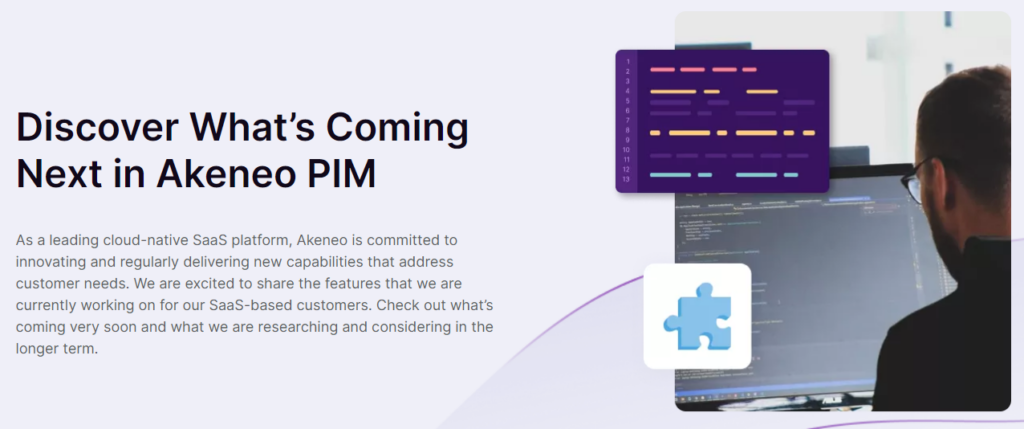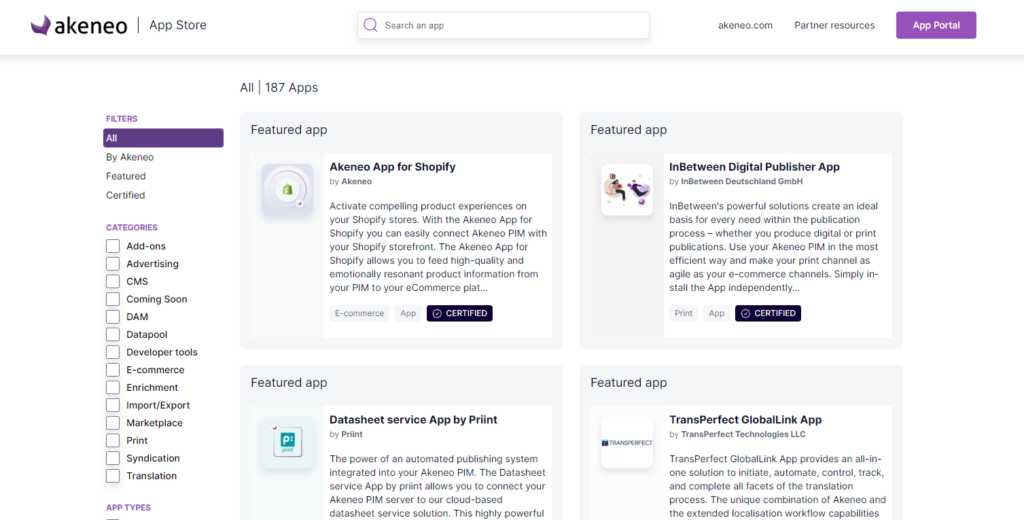Akeneo has been a strong competitor in the Product Information Management (PIM) space for the past several years. While this type of recognition is great for getting attention, for the average person it may be difficult to differentiate between the variety of PIM software on the market today. As someone who has been implementing PIM solutions for the past seven years, I’ve had the opportunity to work with a variety of PIM solutions and Akeneo continues to be one of my favorites.
The Akeneo Difference
The first, and largest, distinction of Akeneo is their unique, software-centric approach. It remain the only PIM solution with an open-source, free, Community Edition available for anyone to download and customize. In addition, there are two different paid versions of Akeneo’s Enterprise Edition: Flexibility for those that want to self-host or customize, and Serenity for those that want faster access to new feature releases. These various hosting options are not something you see with other PIM platforms.
In addition to the various software versions, Akeneo has a clearly communicated roadmap for new features. On their website their team breaks down their efforts into short-term, mid-term, and long-term enhancements. While many other PIM teams will say that “things are in development” few communicate their priorities as explicitly as Akeneo.

Akeneo has heavily invested in their platform’s documentation and API for when their internal development efforts don’t suit your needs. Akeneo’s documentation at www.help.akeneo.com and www.api.akeneo.com is the most complete and organized PIM documentation available. They’ve made it very easy to find answers for any PIM challenge. Both technical and functional documentation is broken down by software version, so you always know you’re looking at the correct information. The API is extensive and provides endpoints to get or post data to any part of the PIM catalog. It also has powerful filtering options that allow you to be specific about what data you’re pulling.
The powerful API has blossomed into a unique and powerful app marketplace which is integrated directly into Akeneo. Through these apps you can add additional functionality to the PIM, such as AI content generation.

When it comes to the software itself, Akeneo has chosen to focus their efforts on data organization and validation. They offer a unique solution which allows you to decouple your product’s attributes from your taxonomy by using Families and Categories. This approach provides more flexibility in how products are organized and allows for teams to use multiple taxonomy trees within the PIM. In terms of data validation, the platform offers several unique attribute types, such as measurements and tables, and allows the user to add additional validation on top of simple attribute typing.
For example, you can configure a number field with a minimum and maximum, while also specifying if negative values and decimals are allowed. These validation parameters are strictly enforced when trying to import data into Akeneo, which prevents “dirty” data from entering your PIM. The result is complete confidence that the data within your PIM is high quality.
Companies often feel forced to replace their data management software every 3-5 years because it either does not keep up with their needs or has been slowly corrupted by small amounts of “dirty” data over time. Akeneo has positioned themselves to combat both of these issues. By prioritizing communication about their internal team’s priorities while also maintaining their robust API documentation and app marketplace Akeneo has the ability to stay relevant when the problems of the future appear. Through their strict data enforcement philosophy the forward thinking tool has prevented the slow corruption of data integrity over time.
As a result, the Akeneo advantage is that it’s the only PIM solution on the market that can be permanently added to your tech stack.
To learn more about Akeneo as a PIM Solution, contact our certified experts.




